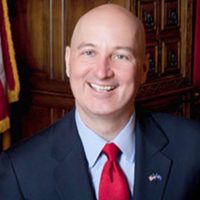
WASHINGTON, D.C. – Thursday, U.S. Senator Pete Ricketts (R-NE) and Senator Tina Smith (D-MN) introduced the Rural Microentrepreneur Assistance Act. The bipartisan bill would extend and enhance the Rural Microentrepreneur Assistance Program (RMAP).
“Small businesses are at the heart of rural communities across Nebraska,” said Senator Ricketts. “Our bipartisan bill gives rural innovators more tools to expand their businesses and create jobs. By expanding opportunity, we can help grow Nebraska.”
“We should be making it a priority to help entrepreneurs turn their dream projects into reality,”said Senator Smith. “Too often, folks trying to start a business in rural communities can’t access the financing they need. This bipartisan legislation would help them get their businesses off the ground with federal loans and technical assistance. I’ll keep working to get it signed into law.”
“It’s essential that programs like RMAP evolve to serve the changing needs of rural entrepreneurs,” said Kalee Olson, Policy Manager for the Center for Rural Affairs.“The Center is grateful to Sens. Ricketts and Smith for introducing legislation to help rural small businesses succeed.”
RMAP was created in the 2008 Farm Bill. The program, run by the U.S. Department of Agriculture (USDA), provides low-interest loans to eligible microenterprise development organizations. Those funds capitalize revolving loan funds that provide loans to qualified rural microenterprises.
The Rural Microentrepreneur Assistance Act increases the maximum amount a rural microenterprise may borrow from $50,000 to $75,000. The bill also increases the maximum allowable federal cost share from 75% to 100%. The bill further specifies that a RMAP project loan may not be used to cover more than 50% of any demolition, construction, or related costs of real estate improvements. Additionally, the bill extends RMAP through the end of Fiscal Year 2030.
Bill text can be found here.
Companion legislation in the House was introduced by U.S. Representatives Zach Nunn (R-IA-03) and John Mannion (D-NY-22).






